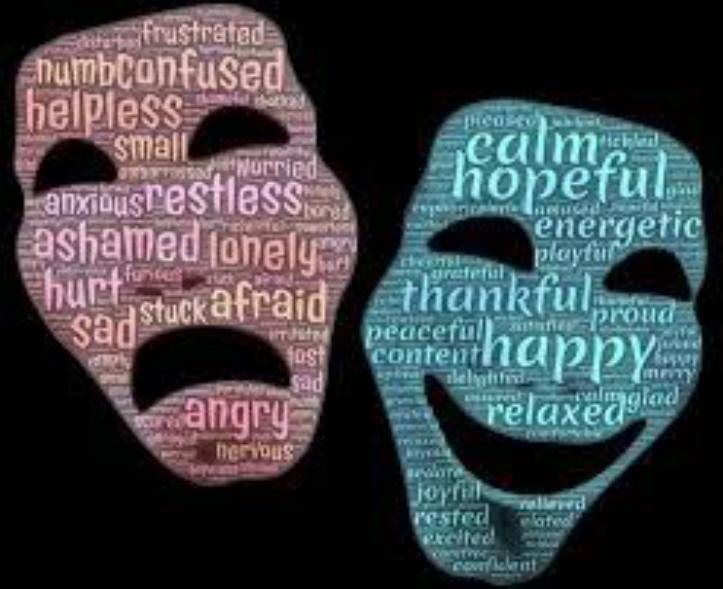In an era obsessed with “main character energy,” the fabric of relationships—romantic, platonic, and communal—seems to be unraveling at an accelerating pace. From declining birth rates to fleeting friendships, our society appears more digitally connected than ever, yet increasingly fragmented in spirit. Many people are opting out of the emotional complexity of meaningful bonds in favor of curated selfhood and filtered narratives. But is this a harmless social trend—or a quiet epidemic of ego over empathy? At Finessed, we believe understanding the psychology behind today’s shifting values is the first step toward rewriting them. This article dives into the growing clash between Main Character Syndrome and Imposter Syndrome, two modern mindsets creating unexpected power imbalances in the workplace, friendships, and even family units. Beyond buzzwords, these psychological phenomena reflect a deeper cultural identity crisis—one where performative presence often overshadows authentic connection, and where humility is mistaken for invisibility.
Main Character vs. Imposter Syndrome
Some call it self-love. Others call it delusion. But Main Character Syndrome—a pop psychology term that’s found traction on TikTok and in think pieces alike—is now more than a meme. It’s becoming a cultural blueprint. Rooted in the desire to be seen as special, the main character lens reorients reality so that everything and everyone exists in support of one’s personal storyline. At first glance, it may seem harmless, even empowering. Who doesn’t want to live life like a movie? But the danger arises when this hyper-individualized worldview erodes our capacity for collective accountability, empathy, and growth.
According to the Cerebral Institute,
- Main character syndrome is defined by a self-centered worldview where one views themselves as the primary protagonist in life, which can be harmful when it affects empathy and behavior towards others. It is not an actual mental health diagnosis.
- Signs of main character syndrome include difficulty accepting criticism, an exaggerated sense of importance, and seeking constant attention. These behaviors can strain relationships and hide deeper insecurities or issues with self-worth. (Cerebral Institute)
It’s not an official mental health diagnosis, but it is a recognizable pattern—marked by difficulty accepting criticism, chronic validation-seeking, and a disregard for the nuanced needs of others. This type of behavior doesn’t just isolate the person acting it out—it also invalidates those around them who are quietly doing the heavy emotional lifting. With the rise of social media, traditional values that have built civilizations are being swept away by benefits of virality, luxury, exclusiveness, materialism, and other artificial validations of success and the seeding grounds for classism and fascism.
Now enter the Imposter. High-performing, hyper-self-aware, and often quietly brilliant, those experiencing imposter syndrome are caught in the opposite loop. The National Library of Medicine defines imposter syndrome as,
a behavioral health phenomenon described as self-doubt of intellect, skills, or accomplishments among high-achieving individuals. These individuals cannot internalize their success and subsequently experience pervasive feelings of self-doubt, anxiety, depression, and/or apprehension of being exposed as a fraud in their work, despite verifiable and objective evidence of their successfulness.[1] The terms imposter syndrome and imposter phenomenon (IP) are used interchangeably, with IP gaining more frequent use in recent literature. (NIH)
These are the women questioning if they’ve earned their seat at the table, despite pulling double the weight. The entrepreneurs who wonder if their latest win was just luck. The creatives second-guessing every post, every pitch, every pivot. When the self-aggrandizing energy of the main character meets the self-diminishing impulse of the imposter, the result is more than just imbalance—it’s erasure. One person commands attention while the other shrinks. One mistakes charisma for competence; the other buries competence under chronic self-doubt. And worst of all, the world often rewards the louder voice.

Signs of a New Social Syndrome
As the behaviors become documented in society, a pattern is forming that provides insight on what to expect as a new social norm. Merriam Webster defines a syndrome as “a group of signs and symptoms that occur together and characterize a particular abnormality or condition, a set of concurrent things (such as emotions or actions) that usually form an identifiable pattern”. (Merriam Webster) With the rise of the colloquial term of main character syndrome, society’s population at large has hit a new low previously ignored. In July 2025, CBS news reported,
The fertility rate in the U.S. dropped to an all-time low in 2024 with fewer than 1.6 children being born per woman, federal data released Thursday shows. The U.S. was once among only a few developed countries with a rate that ensured each generation had enough children to replace itself — about 2.1 kids per woman. But it has been sliding in America for close to two decades as more women are waiting longer to have children or never taking that step at all. (CBS News)
The decline in reproduction can be connected to many things that make up socioeconomic disposition, but with so many ways to make money it appears to be beyond a game of finance. It reflects a generation increasingly disillusioned by romantic partnership and the emotional labor it demands. Women, in particular, are choosing their peace over performance, their evolution over exhaustion. Logan Lutton from Managed Healthcare announced the loneliness levels of today based on the Loneliness in America 2025 survey, he reports,
More than half (57%) of Americans are lonely, according to the results of Loneliness in America 2025, a recent online survey from The Cigna Group conducted by the Evernorth Research Institute. Results were collected from over 7,500 U.S. adults aged 18 and older from May 29 to June 14, 2024. Researchers found that younger generations, such as Gen Z and Millennials, are more lonely than older generations, such as Gen X and Baby Boomers, even though Gen Z and Millennials are more technologically connected than other generations. (Lutton, Managed Healthcare)

With millennials and Gen Z being the most afflicted group, it stands to reason being a digital native in the age of the social media influencers, brand activations, filters, and impressions disenfranchises them from the fulfillment wholesome, authentic, genuine relationships breeds. The ability to attract a partner or friend with the skills and energy they reserve for those they hold dear rather than exploit their talents for fleeting likes and virality is a rarity and gift money can’t buy. As these patterns continue, what does the future hold.
The Negative Encounters of Main Character Syndrome
The math of modern intimacy is changing. Adult friendships are breaking down not because of a lack of shared interests, but because of a lack of emotional maturity. It only takes one disagreement for a connection to collapse. One truth, and suddenly you’re “too much.” Vulnerability, once sacred, is now weaponized—or worse, ridiculed. And in a culture of side-eye, screenshots, and soft launches, showing up as your whole self feels increasingly unsafe. When people with imposter syndrome encounter those with the negative effects of main character syndrome, it disproportionately shifts the roles of those who can innovate with those who can merely pretend. Due to the exaggerated perspective of the main character they overshadow the high achieving imposter.
When met with criticisms the main character deflects and labels the critic as a villain as they refuse to take the role of a sidekick or supporting actor in their life movie. Instead of looking at the imposter as a beneficial partner that can help them grow they use narcissistic tactics to maintain an A list status, no matter the depths of their facade. By the end of the encounter, the skillful imposter is left with unsurety as the insecurities of the main character are ignored by both themselves and the public.

The condition worsens as the imposter syndrome festers in silence. Those who are actually equipped to lead—the innovators, the organizers, the emotionally intelligent visionaries—hesitate to take center stage. Why? Because the spotlight has been overrun by performance, not preparation. And when the world gives the mic to those with better optics than outcomes, it becomes harder for authenticity to thrive.
Do not misinterpret this perspective, being a main character is not wrong. It is unhealthy when the main character is actually bold and untalented. They over inflate their position that takes up space for authentic solutions and harmony. Instead of aligning their strengths and weaknesses with the skills of the capable imposter they create the opposite environment. Due to their lack of talents they create a divisive environment that forces one party to take a diminishing role, rather than share the spotlight; out of fear at the thought of losing their position to the one with talents.

✨ It’s Time to Reclaim the Narrative!
Witnessing their continuous gratification allows one to question the mechanisms of what fuels society. Without the efficacy of the skillful the small day to day luxuries like our sewage system and electrical grid or favorite ice cream shop, spa, or teacher would not have the positive multiplying effect that it did in each person’s life. From the rich down to the poor, when asked about what makes them whole, it’s the simple moments of family and friends that makes the fast paced money making attention seeking late nights, early mornings worth while. Unfortunaletly, when you spend the formative years where healthy bonds are initiated and nurtured with main charactersthe negative effects omay be degrading our social existence faster than we realize. But here’s the pivot Finessed wants you to consider: What if the real leaders aren’t loud, they’re layered? What if your imposter feelings are a clue—not of incompetence, but of your integrity? In a culture addicted to facades, your ability to question yourself might just be your most powerful gift. With the never ending reports of social conflict, inflation and more; main characters are celebrating. Meanwhile, imposters are in the background developing solutions. It is evident now more than ever, it’s time the over achieving imposter takes their leading role back. If you’ve ever dimmed your light in rooms that didn’t value nuance, it’s time to turn it back on—brighter, clearer, and with boundaries. The younger generation is depending on you!

Cerebral Institute. “What is Main Character Syndrome?” National Library of Medicine. “Imposter Syndrome.” https://www.ncbi.nlm.nih.gov/books/NBK559156/
CBS News. “U.S. Fertility Rate Hits All-Time Low.” July 2025. Managed Healthcare. “Loneliness in America 2025.” Logan Lutton, July 2025.
Merriam-Webster. “Definition of Syndrome.”
🧠 Tap Into Your Intentional Era
👉 Take the Finessed Health Segment Quiz to find out if you’re living intentionally, reactively, or in alignment.
📲 Stay tapped in for more brain-meets-beauty gems:
💖 Instagram – @finessed_nyc
🎬 TikTok – @finessednyc
🌐 Facebook – FinessedNYC

